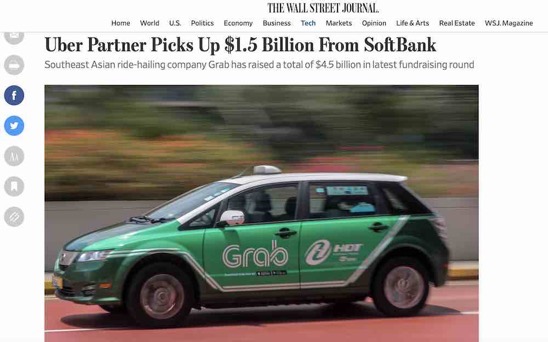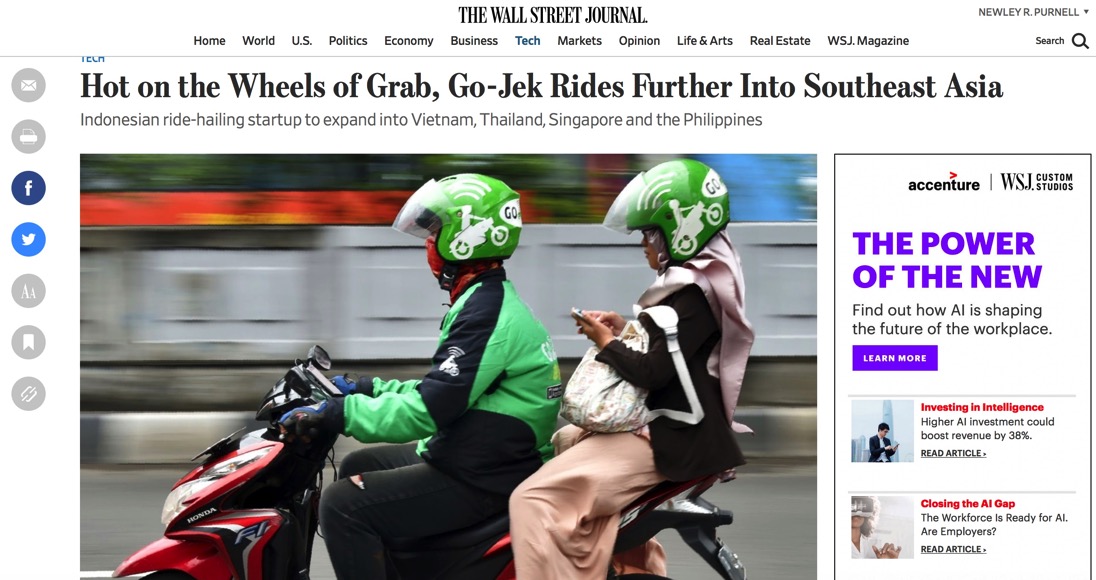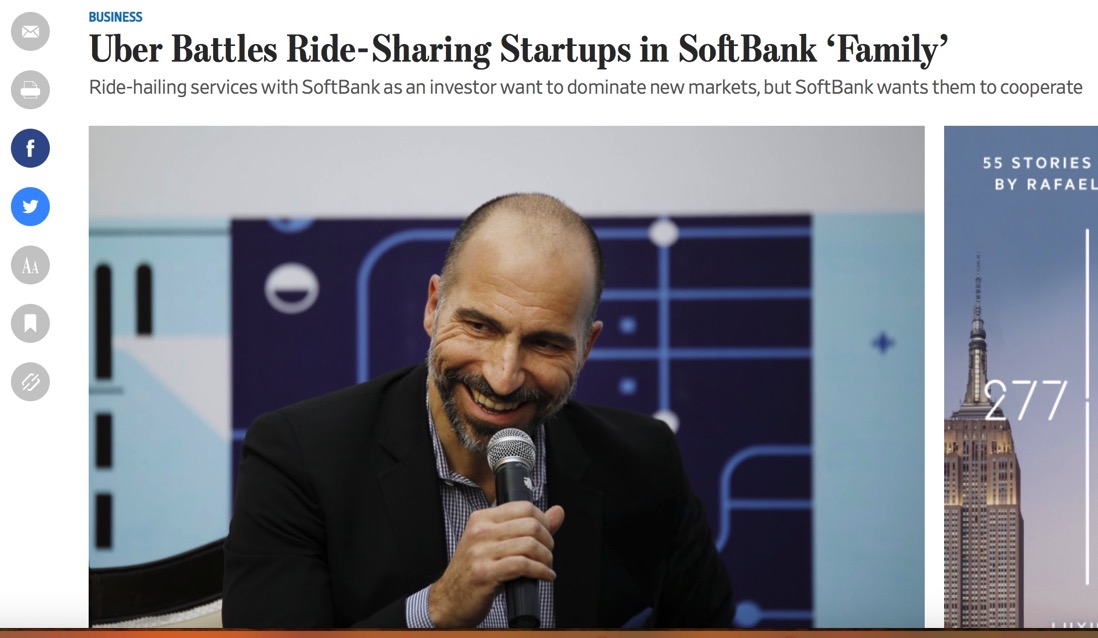I’m behind in sharing some of the stories I’ve been working on. Here are a few from last week.
The first, on Grab’s integration with Lyft in the U.S., begins:
The latest step in a global ride-sharing alliance between rivals of Uber Technologies Inc. went into effect Thursday, allowing users of a popular Southeast Asia-focused transportation app to begin making car bookings via Lyft Inc. in the U.S.
Users of the app from GrabTaxi Holdings Pte. Ltd., which operates in 30 cities across six Southeast Asian countries, can now use the service to hail vehicles in more than 200 U.S. cities via Lyft. In December, Lyft said it was teaming up with Grab, as the company is known, after announcing a similar agreement with Chinese startup Didi Chuxing Technology Co. in September, bolstering the competitive field against the much larger Uber.
The second, on Microsoft, which I wrote while in Hong Kong for our Converge tech conference, begins:
Microsoft Corp. isn’t building its own self-driving car, but is bullish on helping others with related technology, a senior executive said.
“We won’t be building our own autonomous vehicle but we would like to enable autonomous vehicles and assisted driving as well,” said Peggy Johnson, who heads business development for the Redmond, Wash., tech titan, speaking at the Converge technology conference hosted by The Wall Street Journal and f.ounders in Hong Kong Friday.
Ms. Johnson said Microsoft has asked various auto makers what kind of technological applications they are looking for, whether it is working with Azure, its cloud-based service for businesses, Office 365, the cloud version of its productivity software suite, or its Windows operating system.
And finally, another from the conference: a look at how investors – such as Facebook co-founder Eduardo Saverin – are increasingly pouring venture capital funds into Southeast Asia:
Venture capitalists and investors attending the Converge technology conference in Hong Kong on Friday expressed optimism about the future of startups in Southeast Asia, despite significant challenges.
“Between Southeast Asia and India there are about two billion people,” said Facebook Inc. co-founder Eduardo Saverin, speaking on a panel about investment opportunities in the region. “It’s arguably the fastest-growing internet market in the world.”
In the first quarter of this year, funding to companies in Singapore–the region’s startup hub–rose sharply to $199 million from $53.1 million a year earlier, according to Hong Kong-based AVCJ Research.




